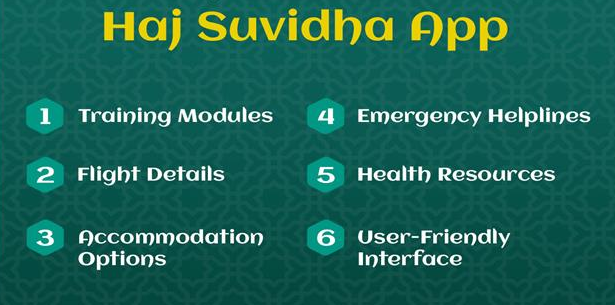In recent years, the Government of India has placed extraordinary emphasis on inclusive governance. Governance, that reaches every citizen, regardless of geography, background or belief. This is also clearly visible in its handling of the annual Haj pilgrimage. Far from a routine administrative exercise, it is a massive humanitarian, diplomatic, and logistical operation that spans nations and cultures. Guided by the ethos of Sabka Saath, Sabka Vikas the Government has turned Haj management into a model of 21st-century service delivery.
Every year, approximately 1.75 lakh pilgrims from India embark on the sacred Haj pilgrimage. Managing such a vast and sensitive operation that spans across four months, through the Haj Committee of India, in close co-ordination with the Kingdom of Saudi Arabia (KSA) is a feat of national coordination, diplomacy and service.
The Government of India, through the Ministry of Minority Affairs, is ensuring that this spiritual journey is not only seamless but also dignified, inclusive, and technologically empowered. In its unflinching commitment to serving all communities without bias, the Government is transforming the Haj experience into one of the most advanced public service operations ever undertaken abroad.
The Haj Suvidha App was launched by the Government of India in 2024, to simplify and enhance the pilgrim experience, by offering real-time access to information such as accommodation, transport and flight details including details of State Haj Inspectors attached to each pilgrim as well as nearest healthcare and transportation facilities. The App also enables grievance submission and tracking, baggage tracking, emergency SOS features, spiritual content, and real-time notifications.
The App was installed last year by more than 67,000 pilgrims, indicating a high rate of acceptance. Over 8000 grievances and more than 2000 SOSs were raised and responded to by the administrative setup established for the Hajis by the Indian Government in the KSA. The SOS and lost pilgrim features were most lauded for tracking and reaching out to the lost pilgrims and providing emergency medical assistance to pilgrims in need.
The App’s feedback-driven architecture allows continuous enhancements throughout the period of the pilgrimage. Insights derived from the App during Haj-2024 served as key inputs for formulating the Haj Policy and Guidelines for 2025. These data-backed decisions exemplify the Government of India’s model of responsive governance for its citizens. Building upon this success in 2024, the Government has now launched Haj Suvidha App 2.0 covering the entire gamut of Haj and creating a truly end-to-end digital solution for the pilgrims.
Haj 2.0 embraces the entire Haj lifecycle from digital submission of pilgrim application, selection (Qurrah), publication of waitlists, payment integration, issuance of Adahi coupons, and cancellation and refund processes. The updated App offers smooth integration with banking networks, enabling pilgrims to make payments via UPI, debit/ credit cards, and internet banking. Real-time flight schedules and electronic boarding passes are also provided to facilitate easier travel.
The App has been augmented with pedometer feature, aimed at inculcating in the pilgrims, a habit of walking, so that they build the stamina required for the arduous journey ahead. Real-time weather updates for aiding pilgrims have also been added, to help pilgrims withstand extreme climatic conditions as well as keeping them healthy and hydrated.
The Indian Haj Medical Contingent is rated as the best and provides world class medical services to the pilgrims through a network of field hospitals and dispensaries established during Haj at Makkah and Madinah. A network of ambulances provides emergency medical support.
The e-health card and e-Hospital module of the Ministry of Health has been integrated with the App this year, leading to seamless admissions and treatment to the pilgrims. This shall also enhance the quality of data available to the doctors for treatment and providing optimum medical service to the pilgrims for Haj 2025.
The much-appreciated luggage tracking system of the App has been further upgraded with RFID based tagging which shall streamline the process of tracking missing luggage and ensure the highest level of service delivery.
Navigation of Haj rituals has been transformed by digital mapping of the Mashaer region, including Mina, Arafat, and Muzdalifa. Camp sites are identified and tracked on the map to guide pilgrims to their destination and minimize their risk of getting lost in the extreme heat of the desert. Features such as Namaz alarms, Qibla compass, and location-based mapping of hospitals, bus stops, service centers, and Indian mission offices significantly enrich the overall experience and convenience of the pilgrims.
A chatbot driven by AI has been included as a digital personal assistant to answer regular questions in a conversational tone, providing instant assistance and advice. This holistic set of features are indicative of the government’s intention to not only leverage technology as a means of service delivery but also as a tool that empowers dignity, convenience, and enablement for everyone, including those on a spiritual path.
The Haj Suvidha App 2.0 is a path breaker in India’s digital public infrastructure and stands as a testament to the vision of the Government of India to ensure that governance extends to every citizen in a meaningful way. Harnessing the power of technology, India is setting new international standards for pilgrim management, providing a seamless, secure, and spiritually enhancing experience for its citizens.
(The Author is Joint Secretary, Ministry of Minority Affairs, GoI)








